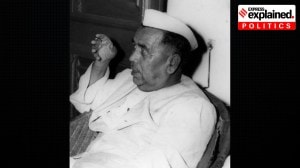Citi breakup in sight after Morgan deal
Citi agreed to merge its Smith Barney brokerage with Morgans wealth management unit.
Citigroup agreed to merge its Smith Barney brokerage with Morgan Stanley’s wealth management unit on Tuesday,and is expected to make further asset sales to raise capital and to isolate toxic assets from the rest of the bank.
Citigroup,once the world’s largest bank,may announce plans on January 22 to formally shed the “financial supermarket” approach once championed by former Chief Executive Sanford “Sandy” Weill,but which is now being disavowed by Chief Executive Vikram Pandit. It is expected the same day to post a big fourth-quarter loss.
Citigroup is planning to adopt the equivalent of a “good bank,bad bank” structure,in which it would slim down to a business model recalling the former Citicorp,a person familiar with the plan said.
The plan envisions focusing on corporate,investment and retail banking and keeping a slimmer trading business,while moving unwanted assets and businesses such as complex debt to a separate structure,the person said on condition of anonymity.
Citigroup’s “bad bank” would have about $600 billion of assets,close to one-third of Citigroup’s balance sheet,which could eventually be sold or spun off,the person said.
Assets that could be sold include its Primerica unit,which sells life insurance,mutual funds and other financial products.
Segregating bad assets has a history of success,said Mike Holland,a money manager at Holland & Co in New York. “It worked in the savings and loan crisis (in the 1980s). I’m getting a sense of deja vu,in a good way.”
Citigroup declined to comment on its longer-term plans.
Federal Reserve Chairman Ben Bernanke said in a speech on in London on Tuesday that the US government could consider buying troubled assets,providing asset guarantees or setting up a so-called bad bank to buy assets from banks in exchange for cash and equity.
Citigroup received $25 billion from the government last October and another $20 billion of capital in November as part of a rescue package.
The joint venture with Morgan Stanley will create the largest US brokerage,Morgan Stanley Smith Barney,with more than 20,000 brokers and $1.7 trillion in client assets. The number of brokers will surpass that of Bank of America Corp (BAC.N),which bought former No. 1 Merrill Lynch on January 1.
Morgan Stanley will pay Citigroup $2.7 billion in cash for an initial 51 per cent stake in the venture,which could grow to 100 per cent after five years.
James Gorman will retain his role as a Morgan Stanley co-president and be chairman of the joint venture,making him a top candidate to succeed Mack at Morgan Stanley’s helm.
Charles Johnston,president of Citigroup’s global wealth management business in the United States and Canada,will be the venture’s president.
The New York-based companies are among dozens of banks to be awarded taxpayer money from the Treasury Department’s $700 billion Troubled Asset Relief Program. Citigroup has been awarded $45 billion,and Morgan Stanley $10 billion.
CITIGROUP MODEL “DIDN’T WORK”
Weill created Citigroup in 1998 when his Travelers Group Inc bought Citicorp,hoping to create a one-stop banking shop for consumers and businesses.
But he never invested enough in the infrastructure and the technology to make the far-flung empire,now operating in more than 100 countries,work well.
“Citigroup’s model was let’s get bigger,and that will make us better,” said Robert Millen,who helps invest $2.5 billion at Jensen Investment Management in Portland,Oregon and does not own the bank’s shares. “It didn’t work that way.”
After Weill’s handpicked successor Charles Prince took over,the bank burrowed deeply into mortgage securities and other complex debt,leaving it exposed to massive credit losses and writedowns as the financial crisis spread around the world.
Now the nation’s third-largest bank by assets,after Bank of America and JPMorgan Chase & Co (JPM.N),Citigroup lost $20.3 billion in the year ended September 30,and is expected to have lost several billion dollars in the fourth quarter,ended December 31.
It expects the joint venture to result in a $5.8 billion after-tax gain,and to add $6.5 billion of tangible common equity.
The combined brokerage will include Morgan Stanley’s wealth management business,and Citigroup’s Smith Barney,Smith Barney Australia and its British unit Quilter. It will not include Citi Private Bank or Nikko Cordial Securities.
Morgan Stanley may boost its stake in the venture to 65 per cent after three years,80 per cent after four years,and 100 per cent after five years.
The banks expect $1.1 billion in cost savings,or 15 per cent of combined expenses,excluding broker commissions.
In after-hours trading,Citigroup shares fell 5 cents to $5.85,after closing up 30 cents to $5.90 in regular trading. Morgan Stanley shares fell 16 cents after hours to $18.70 after rising 7 cents to $18.86 in regular trading.
Morgan Stanley is diversifying,less than four months after adopting a bank holding company structure to help ensure its survival,something that smaller rivals Bear Stearns and Lehman Brothers Holdings failed to do.
KEEPING BROKERS
Brokerage combinations often result in attrition,and the joint venture will need to focus on retaining brokers,according to Paul Tramontano,CEO of Constellation Wealth Advisors and a Smith Barney broker for 17 years.
He said five Smith Barney brokers called him on Tuesday afternoon for guidance about their futures.
“At a big firm,the temptation is to stuff products into your sales channel,which are not always the best products for clients,” Tramontano said. “How often will a big firm produce a product that is in the best interests of clients? Clients and brokers will vote with their feet.”
On a conference call,Gorman deflected questions about retention bonuses,but said managers are “cognizant of the environment we’re in.”
Fox-Pitt Kelton analyst David Trone said on Tuesday that the venture may impede JPMorgan Chase Chief Executive Jamie Dimon’s efforts to expand in retail brokerage. That bank was not immediately available for comment.
The transaction is expected to close in the third quarter,pending regulatory approval and other conditions. A board of directors will include representatives from both companies.
The law firm Wachtell Lipton Rosen & Katz advised Morgan Stanley,and the law firm David Polk & Wardwell advised Citigroup. The law firm Cravath,Swaine & Moore LLP said it advised Citigroup’s independent directors.





- 01
- 02
- 03
- 04
- 05


























